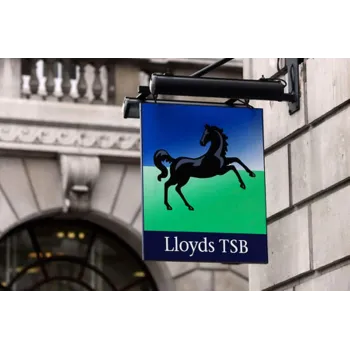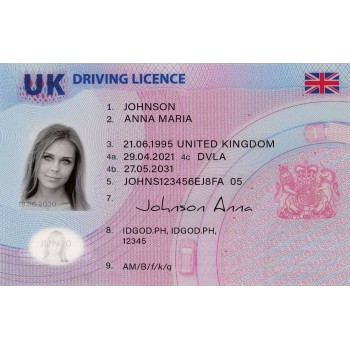DECEPTION
The Theft Acts 1968 and 1978 created a range of offenses which involved the dishonest obtaining of something of value by deception.
Sec.15 TA 1968: Obtaining property by deception
Sec.16 TA 1968: Obtaining pecuniary advantage by deception
Sec.1 TA 1978: Obtaining services by deception
Sec.2 TA 1978: Evading liability by deception
With all of these offenses there are three common elements.
1. A notion of dishonesty (see notes on the Ghosh test)
2. Whatever is obtained (property, services etc) must be obtained as a result of the deception.
3. A notion of deception (a deception is essentially a lie, what the deception/lie actually is must be determined).
DEFINING DISHONESTY
Dishonesty is dealt with by Ghosh, which states that there is a two part test.
1. The objective test which questions whether the reasonable person would have said the action was dishonest.
2. If the reasonable person answers ‘yes’, a more subjective question is asked. Did the defendant realize that the reasonable person would have thought the action dishonest?
Note that this is not a pure subjective test, the test is NOT did the defendant think the act was dishonest. This ensures there is no loophole whereby a defendant can claim that while the action may be regarded as highly dishonest by other people, he did not think it was dishonest.
THE DECEPTION MUST LEAD TO THE OBTAINING
The deception (or lie) must lead to the obtaining and must act on the mind of the deceived. Because of the requirement that the lie operates on the mind of the deceived, there is no deception offense if you obtain something from a machine.
These requirements also mean that there is no deception offence if you lie to someone but they don’t believe you, the lie has not operated on the other person’s mind. Also, if you deceive someone and they believe you but they do not give you the property/services etc because of the deception, there is no deception offence.
The definition also means that, as well as the deception operating on the mind of the other person, it must come BEFORE the obtaining. So if you hand a book to me and I tell you AFTER you hand it to me that I will borrow it for a week, intending to keep it, there is no deception offence because the deception (lie) has come after the obtaining, the appropriate offence would be straight theft.
DEFINING DECEPTION
Sec.15 (4) states: for the purposes of this section ’deception’ means any deception (whether deliberate or reckless) by words or conduct as to fact or as to law, including a deception as to the present intentions of the person using the deception or any other person.
Important points to note about this partial definition include:
1. There must be a deceiver and a deceived person
2. The deception can be words or conduct
3. The first thing the prosecution must do is prove that the representation which was made is false.
4. Note that the definition contains the word ‘reckless’. For the purposes of this Act, reckless is defined in the Cunningham sense.
Can an omission or silence be a deception?
According to the case of Firth (Section 2[1] TA 1978), an omission can, in certain instances, be a deception. In this case, a Doctor referred some patients for treatment at a hospital. During his referral he did not mention that the patients were private patients and so they were treated free of charge by the hospital on the NHS. The Court held that by not telling the hospital that the patients were private he had deceived the hospital. However, the Court did talk about the act as one whereby during his referral where he said nothing about their status, that the inference to be drawn was that they were NHS patients, and that this was positive conduct on the part of the doctor. This case is used to show that an omission CAN be a deception, however, it is arguable that rather than an omission, the act, taken as a whole and given the assumptions to be drawn in the referral, was in fact a positive one.
Silence is a more tricky area. Sometimes it can be regarded as deception, and sometimes not! The case in question is DPP v Ray. (Non payment for a meal in a restaurant). Some different situation arise when considering this type of action.
1. The Defendant makes an assertion by statement or conduct that he believes to be true (when you order a meal the assertion made by conduct is that you will pay for it). Before he obtains the property (meal) he decides on another course of action making the original assertion untrue (decides not to pay). By remaining silent about the change of assertion the Defendant is making a continuing representation that the original assertion is still true (still intends to pay for the meal) = LIABILITY FOR DECEPTION
2. The Defendant makes an assertion he believes to be true but in fact it is not true (he asserts by ordering the meal that he can pay for it but he has no money or means of payment). Before he obtains the property (meal) he learns the assertion is false (discovers he has no means of payment). If he does not correct the assertion made to the other person, he is either - falsely representing through his silence that the original assertion is still true or is continuing (falsely) to make the original assertion. = LIABILITY FOR DECEPTION
Deliberate or reckless?
The definition also allows that the deception can be either deliberate or reckless.
Deliberate = when the Defendant knows his statement is false and will or may be accepted as true by the other person
Reckless = when the Defendant is aware that his statement may be false and may be accepted as true OR if he is aware that it is ambiguous and may be understood by the other person in the false sense. In other words, the Defendant can be reckless as to the falsity of the statement and as to whether the other person is deceived.
If the Defendant believes his statement is true he is NOT reckless, however unreasonable his belief in the truth of the statement, but the more unreasonable the defendants belief, the more likely the jury will be satisfied that the belief in its truth was not in fact held by the Defendant.
Furthermore, if a defendant has made a statement to a person which he believes to be true, but later he either discovers it to be untrue, or the statement becomes untrue, the Defendant is under an obligation to correct the misconception. (Firth)
Cheque Cards and Credit Cards
These two methods of payment, when used by a person who has been told by their bank not to, have caused problems in relation to deception offenses. The leading cases are Charles and Lambie. In both instances the Defendants used a cheque card or a credit card in a way that was not authorized by their banks. The courts found them guilty of deception offenses using the argument that the deception that led to the obtaining was that each Defendant, by proffering the card, was representing to the cashiers that s/he was authorized by the bank to use them.
If you consider the use of cheque cards and credit cards it is easy to see that in practical reality this deception does not in fact operate on the mind of the cashier. When you use one of these cards, the sales assistant is interested in a number of things, but probably not in the relationship you have with your bank! The assistant will be interested in whether or not the cheque or credit slip will be honored on presentation to the bank. So long as they check that the card number, signature, expiry date and, in the case of cheque cards, the amount the card guarantees, the bank will be bound to honor the cheque/credit slip even if the bank has told you not to use your cheque book at the moment until you have cleared off some of your overdraft!
In this way the courts have created or inferred a deception in order to construct liability. While the deception the courts use in these instances may not actually work on the mind of the person accepting the cheque/credit card, these 2 cases still stand and ensure that if you use your cheque card/credit card when you have been told not to by your bank, the courts can convict of a deception offense, in other words, when you are acting without the authority of the card issuer.
Obtaining what?
Property - defined in the same way as theft, so s4 TA 1968
Pecuniary Advantage - s16(2) of TA 1968 defines the situations in which a pecuniary advantage may exist - these are
1. Obtaining an overdraft by deception
2. Obtaining insurance by deception
3. Gaining better terms for an overdraft or insurance policy by deception
4. Obtaining an annuity by deception
5. Obtaining the opportunity for remuneration in office or employment.
6. Winning money through betting by deception
The courts have construed this very strictly.
McNiff - The obtaining of the pecuniary advantage must be done in office or employment - the obtaining of a pub tenancy was not a pecuniary advantage
A person can also be guilty of obtaining pecuniary advantage by deception if they do so for another person, so if someone helps you to get a job by deception (perhaps by forging necessary documents or references) they too will be guilty under s16 TA 1968.
Note that the offence is committed in relation to the remuneration definition when you gain the opportunity to obtain remuneration in office or employment. The offence occurs when the deception is made and operates on the mind of the other person, not later when payment is made.
Services - occurs where the other is induced to confer a benefit by doing some act or causing or permitting some act to be done on the understanding that the benefit has been or will be paid for.
Services which are offered free of charge (for example painting someone’s house) do not fall within the ambit of this offense as the offense requires that some form of payment has or will be made.
Halai - mortgage advances are not obtaining services
Widdowson - obtaining a car on a hire purchase agreement is obtaining services by deception as it is permission to use the car
Evasion of liability by deception - a number of different acts are included in this offense, these are
1. securing the remission (whole or part) of an existing liability to pay for something by deception
2. inducing a creditor to wait for a payment that you owe
3. to forgo a payment to a creditor
4. obtaining exemption from or abatement of an existing liability to pay for something
All of these definitions include an existing or prospective liability to make payment for something.
The obligation to make payment must be legally enforceable (so paying a prostitute for her services is not included within the ambit of this offense!)
The existing liability must be actual (ie real) rather than only a potential liability or contingent on some other factor, although the actual liability does include scenarios in which payment need not be made for a long time.
The securing of remission of an existing liability can be done either for yourself or for another person, you will still be held liable for the offense. Also in securing this remission, the liability can be part or whole. So if you, by deception, manage to persuade a creditor to accept half payment now and another part of the remaining liability later (by telling him a lie) you can be found guilty of this offense.
The Theft Acts 1968 and 1978 created a range of offenses which involved the dishonest obtaining of something of value by deception.
Sec.15 TA 1968: Obtaining property by deception
Sec.16 TA 1968: Obtaining pecuniary advantage by deception
Sec.1 TA 1978: Obtaining services by deception
Sec.2 TA 1978: Evading liability by deception
With all of these offenses there are three common elements.
1. A notion of dishonesty (see notes on the Ghosh test)
2. Whatever is obtained (property, services etc) must be obtained as a result of the deception.
3. A notion of deception (a deception is essentially a lie, what the deception/lie actually is must be determined).
DEFINING DISHONESTY
Dishonesty is dealt with by Ghosh, which states that there is a two part test.
1. The objective test which questions whether the reasonable person would have said the action was dishonest.
2. If the reasonable person answers ‘yes’, a more subjective question is asked. Did the defendant realize that the reasonable person would have thought the action dishonest?
Note that this is not a pure subjective test, the test is NOT did the defendant think the act was dishonest. This ensures there is no loophole whereby a defendant can claim that while the action may be regarded as highly dishonest by other people, he did not think it was dishonest.
THE DECEPTION MUST LEAD TO THE OBTAINING
The deception (or lie) must lead to the obtaining and must act on the mind of the deceived. Because of the requirement that the lie operates on the mind of the deceived, there is no deception offense if you obtain something from a machine.
These requirements also mean that there is no deception offence if you lie to someone but they don’t believe you, the lie has not operated on the other person’s mind. Also, if you deceive someone and they believe you but they do not give you the property/services etc because of the deception, there is no deception offence.
The definition also means that, as well as the deception operating on the mind of the other person, it must come BEFORE the obtaining. So if you hand a book to me and I tell you AFTER you hand it to me that I will borrow it for a week, intending to keep it, there is no deception offence because the deception (lie) has come after the obtaining, the appropriate offence would be straight theft.
DEFINING DECEPTION
Sec.15 (4) states: for the purposes of this section ’deception’ means any deception (whether deliberate or reckless) by words or conduct as to fact or as to law, including a deception as to the present intentions of the person using the deception or any other person.
Important points to note about this partial definition include:
1. There must be a deceiver and a deceived person
2. The deception can be words or conduct
3. The first thing the prosecution must do is prove that the representation which was made is false.
4. Note that the definition contains the word ‘reckless’. For the purposes of this Act, reckless is defined in the Cunningham sense.
Can an omission or silence be a deception?
According to the case of Firth (Section 2[1] TA 1978), an omission can, in certain instances, be a deception. In this case, a Doctor referred some patients for treatment at a hospital. During his referral he did not mention that the patients were private patients and so they were treated free of charge by the hospital on the NHS. The Court held that by not telling the hospital that the patients were private he had deceived the hospital. However, the Court did talk about the act as one whereby during his referral where he said nothing about their status, that the inference to be drawn was that they were NHS patients, and that this was positive conduct on the part of the doctor. This case is used to show that an omission CAN be a deception, however, it is arguable that rather than an omission, the act, taken as a whole and given the assumptions to be drawn in the referral, was in fact a positive one.
Silence is a more tricky area. Sometimes it can be regarded as deception, and sometimes not! The case in question is DPP v Ray. (Non payment for a meal in a restaurant). Some different situation arise when considering this type of action.
1. The Defendant makes an assertion by statement or conduct that he believes to be true (when you order a meal the assertion made by conduct is that you will pay for it). Before he obtains the property (meal) he decides on another course of action making the original assertion untrue (decides not to pay). By remaining silent about the change of assertion the Defendant is making a continuing representation that the original assertion is still true (still intends to pay for the meal) = LIABILITY FOR DECEPTION
2. The Defendant makes an assertion he believes to be true but in fact it is not true (he asserts by ordering the meal that he can pay for it but he has no money or means of payment). Before he obtains the property (meal) he learns the assertion is false (discovers he has no means of payment). If he does not correct the assertion made to the other person, he is either - falsely representing through his silence that the original assertion is still true or is continuing (falsely) to make the original assertion. = LIABILITY FOR DECEPTION
Deliberate or reckless?
The definition also allows that the deception can be either deliberate or reckless.
Deliberate = when the Defendant knows his statement is false and will or may be accepted as true by the other person
Reckless = when the Defendant is aware that his statement may be false and may be accepted as true OR if he is aware that it is ambiguous and may be understood by the other person in the false sense. In other words, the Defendant can be reckless as to the falsity of the statement and as to whether the other person is deceived.
If the Defendant believes his statement is true he is NOT reckless, however unreasonable his belief in the truth of the statement, but the more unreasonable the defendants belief, the more likely the jury will be satisfied that the belief in its truth was not in fact held by the Defendant.
Furthermore, if a defendant has made a statement to a person which he believes to be true, but later he either discovers it to be untrue, or the statement becomes untrue, the Defendant is under an obligation to correct the misconception. (Firth)
Cheque Cards and Credit Cards
These two methods of payment, when used by a person who has been told by their bank not to, have caused problems in relation to deception offenses. The leading cases are Charles and Lambie. In both instances the Defendants used a cheque card or a credit card in a way that was not authorized by their banks. The courts found them guilty of deception offenses using the argument that the deception that led to the obtaining was that each Defendant, by proffering the card, was representing to the cashiers that s/he was authorized by the bank to use them.
If you consider the use of cheque cards and credit cards it is easy to see that in practical reality this deception does not in fact operate on the mind of the cashier. When you use one of these cards, the sales assistant is interested in a number of things, but probably not in the relationship you have with your bank! The assistant will be interested in whether or not the cheque or credit slip will be honored on presentation to the bank. So long as they check that the card number, signature, expiry date and, in the case of cheque cards, the amount the card guarantees, the bank will be bound to honor the cheque/credit slip even if the bank has told you not to use your cheque book at the moment until you have cleared off some of your overdraft!
In this way the courts have created or inferred a deception in order to construct liability. While the deception the courts use in these instances may not actually work on the mind of the person accepting the cheque/credit card, these 2 cases still stand and ensure that if you use your cheque card/credit card when you have been told not to by your bank, the courts can convict of a deception offense, in other words, when you are acting without the authority of the card issuer.
Obtaining what?
Property - defined in the same way as theft, so s4 TA 1968
Pecuniary Advantage - s16(2) of TA 1968 defines the situations in which a pecuniary advantage may exist - these are
1. Obtaining an overdraft by deception
2. Obtaining insurance by deception
3. Gaining better terms for an overdraft or insurance policy by deception
4. Obtaining an annuity by deception
5. Obtaining the opportunity for remuneration in office or employment.
6. Winning money through betting by deception
The courts have construed this very strictly.
McNiff - The obtaining of the pecuniary advantage must be done in office or employment - the obtaining of a pub tenancy was not a pecuniary advantage
A person can also be guilty of obtaining pecuniary advantage by deception if they do so for another person, so if someone helps you to get a job by deception (perhaps by forging necessary documents or references) they too will be guilty under s16 TA 1968.
Note that the offence is committed in relation to the remuneration definition when you gain the opportunity to obtain remuneration in office or employment. The offence occurs when the deception is made and operates on the mind of the other person, not later when payment is made.
Services - occurs where the other is induced to confer a benefit by doing some act or causing or permitting some act to be done on the understanding that the benefit has been or will be paid for.
Services which are offered free of charge (for example painting someone’s house) do not fall within the ambit of this offense as the offense requires that some form of payment has or will be made.
Halai - mortgage advances are not obtaining services
Widdowson - obtaining a car on a hire purchase agreement is obtaining services by deception as it is permission to use the car
Evasion of liability by deception - a number of different acts are included in this offense, these are
1. securing the remission (whole or part) of an existing liability to pay for something by deception
2. inducing a creditor to wait for a payment that you owe
3. to forgo a payment to a creditor
4. obtaining exemption from or abatement of an existing liability to pay for something
All of these definitions include an existing or prospective liability to make payment for something.
The obligation to make payment must be legally enforceable (so paying a prostitute for her services is not included within the ambit of this offense!)
The existing liability must be actual (ie real) rather than only a potential liability or contingent on some other factor, although the actual liability does include scenarios in which payment need not be made for a long time.
The securing of remission of an existing liability can be done either for yourself or for another person, you will still be held liable for the offense. Also in securing this remission, the liability can be part or whole. So if you, by deception, manage to persuade a creditor to accept half payment now and another part of the remaining liability later (by telling him a lie) you can be found guilty of this offense.






